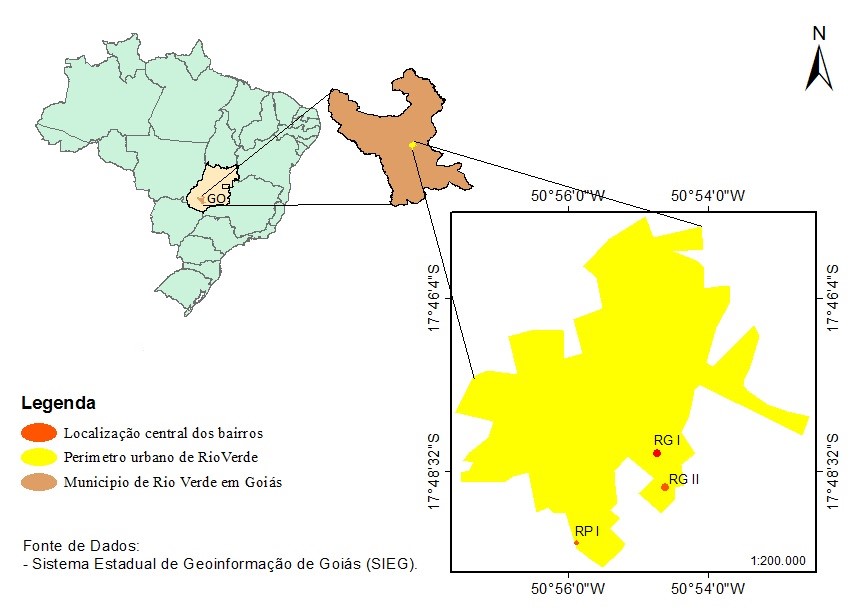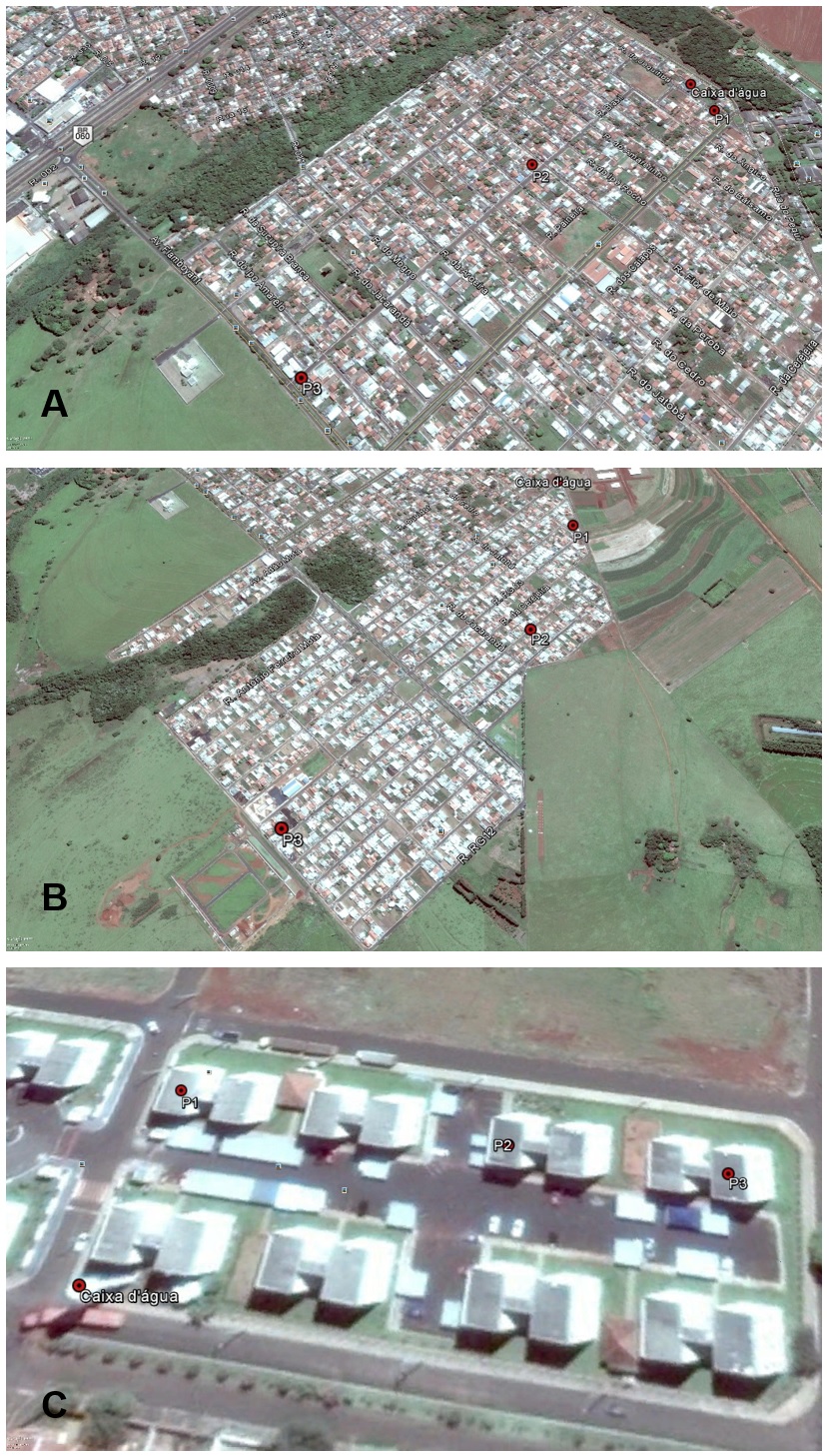Abstract
Water distributed for public supply must comply with the standard potability in order to be sanitarily safe and not to expose the supplied population to epidemiological risks inherent to waterborne diseases. This study aimed to evaluate the quality of the water distributed to residents of three neighborhoods in the city of Rio Verde, Goiás state. Four samples were collected per week on December 7th, 14th, 21st and 28th 2012, at the three locations selected. The parameters analyzed were temperature, total dissolved solids, conductivity, turbidity, pH, free residual chlorine, total coliforms and Escherichia coli. The average results were compared with the limits established by the Ministry of Health Ordinance No. 2914 of 2011. All the samples met the limits established by that order related to total dissolved solids parameters, turbidity, pH, total coliforms and Escherichia coli. The analyzed water supply system presented unconformity regarding the free residual chlorine level in two neighborhoods, which can compromise the health of the population served. The operational procedures in the water treatment disinfection step must be rectified so that the free residual chlorine levels in the distribution network meet the legal limits.
Keywords:
water quality; water supply; sanitation; public health

 Thumbnail
Thumbnail
 Thumbnail
Thumbnail

